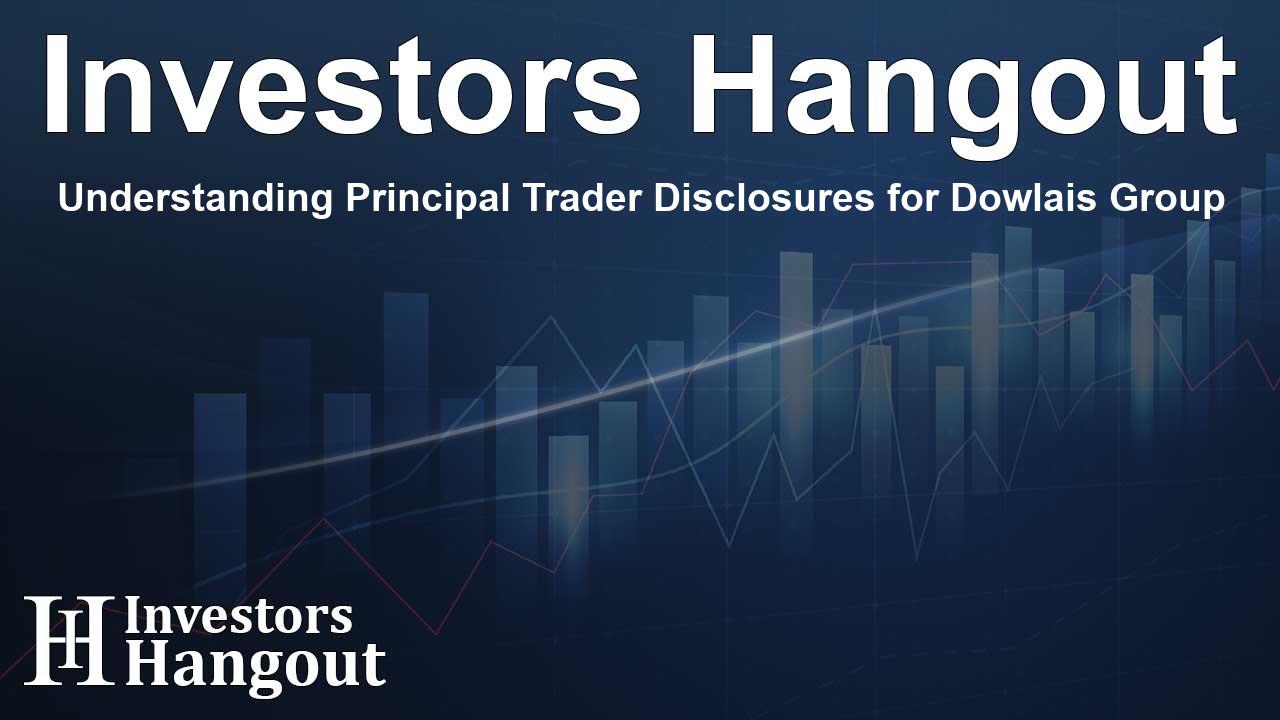Understanding Principal Trader Disclosures for Dowlais Group

Public Disclosure Insights for Principal Traders
The realm of financial trading is ever-evolving, requiring traders to navigate intricate regulations and ensure compliance at every step. In this article, we delve into the regulations surrounding principal trading disclosures, focusing on Dowlais Group Plc. As an investor or simply someone intrigued by the trading sector, understanding these disclosures can enhance your grasp of the current financial landscape.
Key Information About the Trader
The principal trader involved in the recent activities surrounding Dowlais Group Plc is none other than Investec Bank plc. This firm, recognized for their adept handling of investment and trading strategies, has a specific connection with Dowlais Group, acting as the broker in their dealings. It's crucial for traders and investors alike to understand who is facilitating transactions within such entities.
Understanding the Disclosures
When examining transactions, it becomes essential to categorize them correctly. Purchases and sales are fundamental aspects, as they paint a clear picture of market activity. In this instance, we can look at ordinary shares of Dowlais Group. A total of 10,713 shares were both purchased and sold at a price of 80.4, highlighting vital trading metrics that stakeholders should watch closely.
In addition, cash-settled derivatives must also be accounted for. While no relevant transactions were reported in this category, the importance of monitoring these can’t be understated as they often reflect underlying market sentiments and projections.
Stock-settled Derivatives
Stock-settled derivatives, which include options, represent another critical area of focus. In this specific report, we noted that there was no activity related to options for Dowlais Group, reiterating the need for traders to remain vigilant in areas that may lead to future opportunities.
Indemnity and Dealing Arrangements
As part of the requirement for disclosures, any indemnities or arrangements that incentivize trading must be acknowledged. In this case, it was reported that there are no existing agreements related to such inducements, keeping the trading landscape transparent.
Future Considerations
While it's common for traders to encounter various agreements relating to voting rights and derivative positions, it was noted that there were no such arrangements present in this instance. This level of transparency fosters a trust-based environment among traders and investors, enabling better decision-making.
Contact Information
Effective communication remains vital within this trading ecosystem. For further inquiries regarding disclosures related to Dowlais Group, individuals can reach out to Priyali Bhattacharjee at +91-9768034903. Staying engaged through proper channels ensures that all stakeholders are well-informed and can navigate trading opportunities effectively.
As we navigate through this trading disclosure landscape, it’s confirmed that public disclosures are mandated to follow rules set forth by relevant regulatory bodies. Understanding these guidelines can help in fostering a compliant and informed trading environment.
Frequently Asked Questions
What is a public dealing disclosure?
A public dealing disclosure is a formal notification that outlines the trading activities undertaken by principal traders, providing essential transparency in financial markets.
Who is responsible for ensuring compliance with disclosure rules?
Principal traders, along with their corresponding brokers, are responsible for adhering to the established compliance rules governing disclosures.
Why are disclosures important for investors?
Disclosures ensure that investors have access to relevant information about trading activities, which can influence investment decisions and market behavior.
What happens if a trader violates disclosure rules?
Violating disclosure rules can lead to penalties, including fines and regulatory scrutiny, which can negatively impact a trader’s reputation and business operations.
How often are disclosures required?
Disclosures are required whenever relevant trading activities occur or when there are material changes regarding the trading position of the principal trader.
About The Author
Contact Riley Hayes privately here. Or send an email with ATTN: Riley Hayes as the subject to contact@investorshangout.com.
About Investors Hangout
Investors Hangout is a leading online stock forum for financial discussion and learning, offering a wide range of free tools and resources. It draws in traders of all levels, who exchange market knowledge, investigate trading tactics, and keep an eye on industry developments in real time. Featuring financial articles, stock message boards, quotes, charts, company profiles, and live news updates. Through cooperative learning and a wealth of informational resources, it helps users from novices creating their first portfolios to experts honing their techniques. Join Investors Hangout today: https://investorshangout.com/
The content of this article is based on factual, publicly available information and does not represent legal, financial, or investment advice. Investors Hangout does not offer financial advice, and the author is not a licensed financial advisor. Consult a qualified advisor before making any financial or investment decisions based on this article. This article should not be considered advice to purchase, sell, or hold any securities or other investments. If any of the material provided here is inaccurate, please contact us for corrections.
